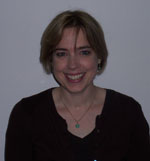
![]()
Neophyte
Jennifer Scully
 |
| Jennifer Scully |
Season’s Greetings, Neophyte! And congratulations—you have earned a well-deserved week off from your first year of K-12 ESL teaching. It is somewhat normal, though, to feel down at this point during your first year, thus the theme of “Surviving Psychologically” for this column. Twenty percent of teachers leave the profession early in their careers (http://www.muninetguide.com/articles/when-student-and-teacher-dropout-rates-intersect-358.php); some choose the education field inappropriately, but if you have both the heart and the passion, you can not only survive but thrive, contributing to both your students and our profession. Here are some ideas for you that may help:
- Be proactive and discern what you can control from what you cannot. This may help you to focus your effort, time, and attention on the most important aspects of your professional life. To help you do so, read this summary of Covey’s Circle of Concern and Circle of Influence at http://www.breakoutofthebox.com/circle.htm.
- Take off one day a week from teaching—no lesson planning, paper grading, or talking shop. Use the time to take care of yourself and reconnect with the important people in your life.
- Plan out the rest of your year. Choose seven themes for thematic units—one for each remaining month of the school year. Think about appropriate ways to deliver instruction via these themes, including field trips, which are valuable for ELLs and refreshing morale boosters for everyone. This will give you a sense of direction and purpose; enthusiasm will surely ensue!
- If you haven’t yet found a mentor or some buddies to spend time with, collaborate with, plan with, commisserate with—look for someone you think you are compatible with professionally and personally. NYSTESOL can help you find a mentor; see http://www.nystesol.org/membership/index.html).
- Take advantage of what NYSTESOL has to offer you. You can find a mentor, develop professional knowledge and gain inspiration. Attend NYSTESOL events like the upcoming NYS TESOL Applied Linguistics SIG Conference: Applied Linguistics in the 21st Century: Sharing Insights and Looking Ahead on Saturday, February 12, 2011. It is at Teachers College, Columbia University at 525 West 120th Street, New York, NY. These events will refresh your spirit; you will network with colleagues and potential employers, check out new materials, and add a few new tools to your bag of tricks.
-
Set professional goals for yourself. The key to developing excellence at any given skill is not innate talent, but identification of one’s areas for improvement, creation of a plan of attack, and a lot of deliberate practice. To learn more, read (from longest to shortest) Talent is Overrated , available on Amazon.com at http://www.amazon.com/Talent-Overrated-Separates-World-Class-Performers/dp/1591842247 or “The Making of an Expert” available at http://www.coachingmanagement.nl/The%20Making%20of%20an%20Expert.pdf, or “Deliberate Practice in a Nutshell” at http://www.hooversbiz.com/2009/03/04/deliberate-practice-in-a-nutshell/.
These readings reminded me of my first observation, when my observer told me, “Teachers are either born or made; you were obviously not made, and have a long way to go!” Ouch! Next column, I will write about how to handle observations.
___________________________________________________________
Jennifer Scully started teaching ESL in 1992 and has worked with students from kindergarten to college. She works with New York City Teaching Fellows, graduate students in TESOL, and mainstream teachers to improve their practice with ELLs. She provides professional development in various settings but still works with elementary school ELLs to stay current.
